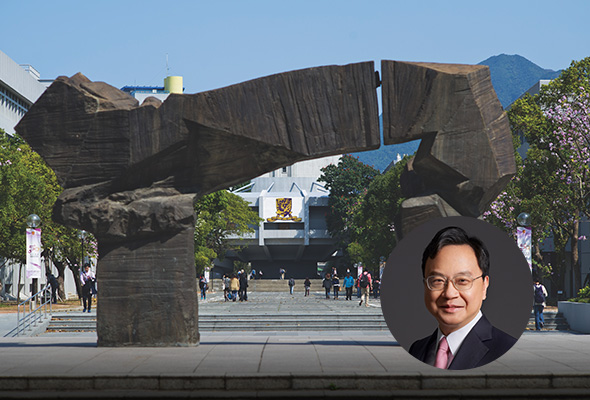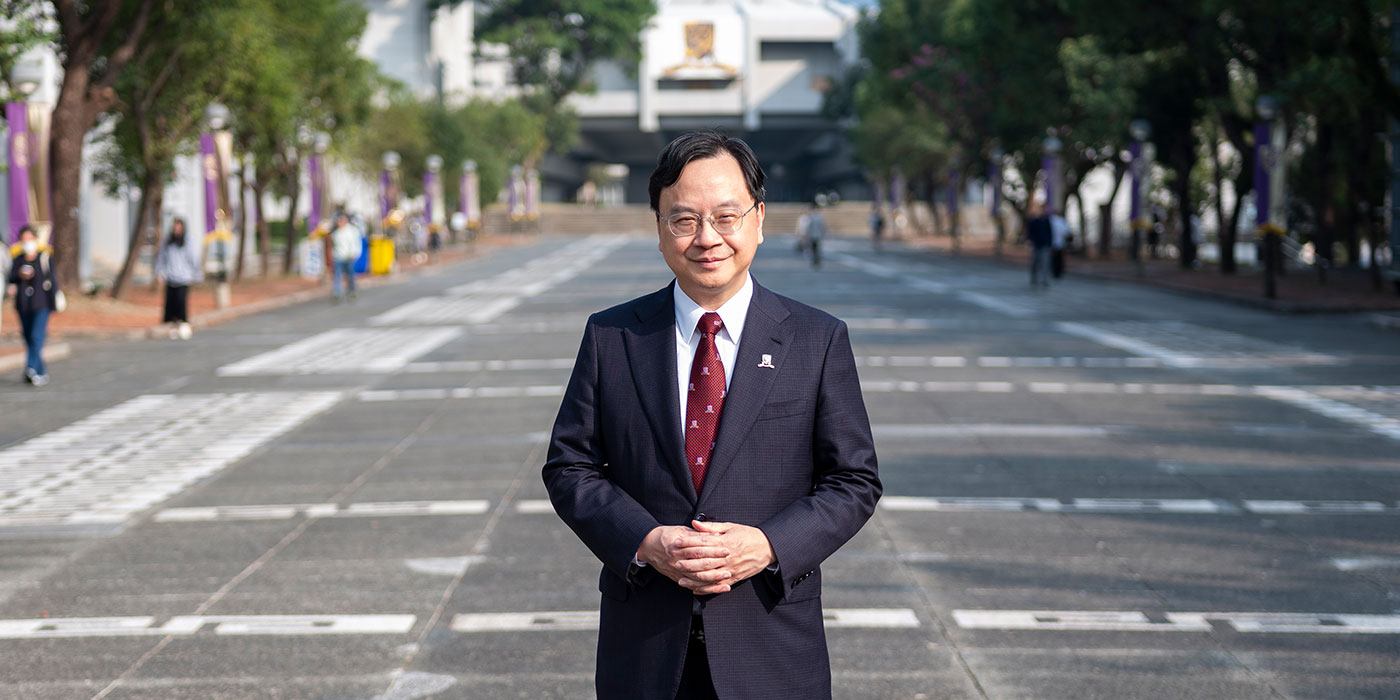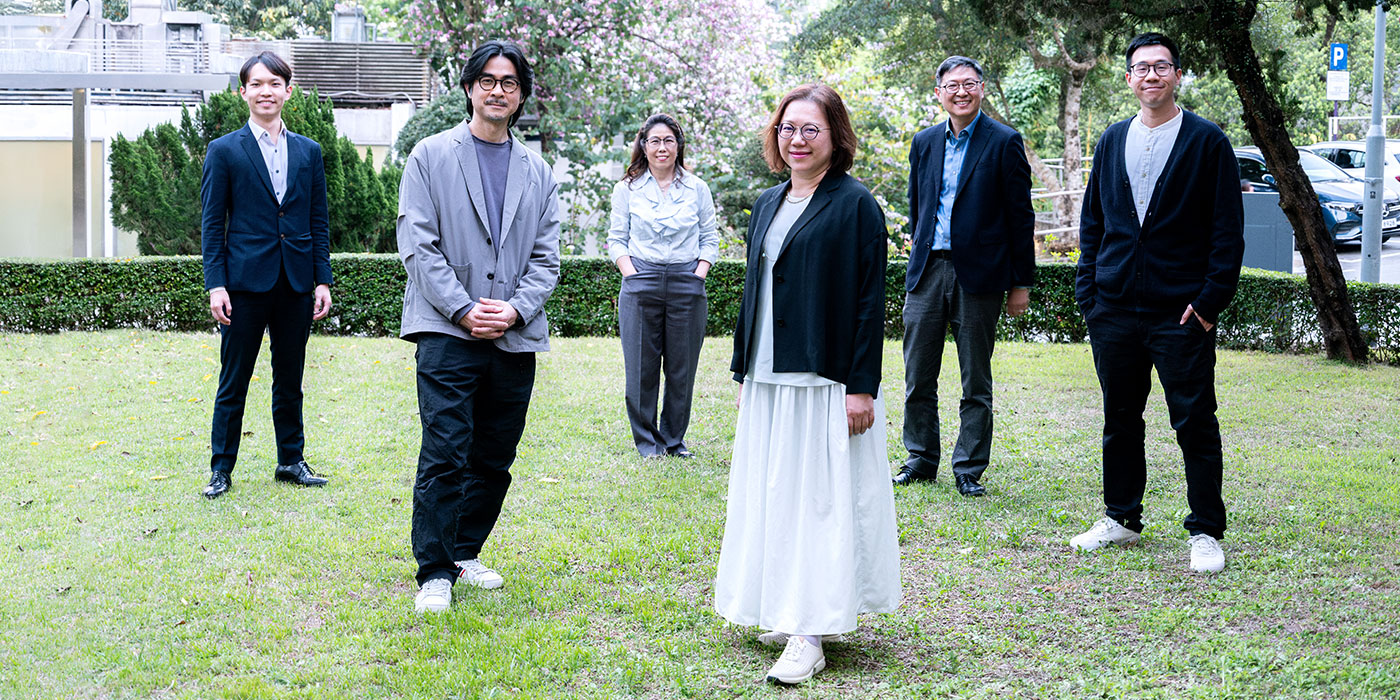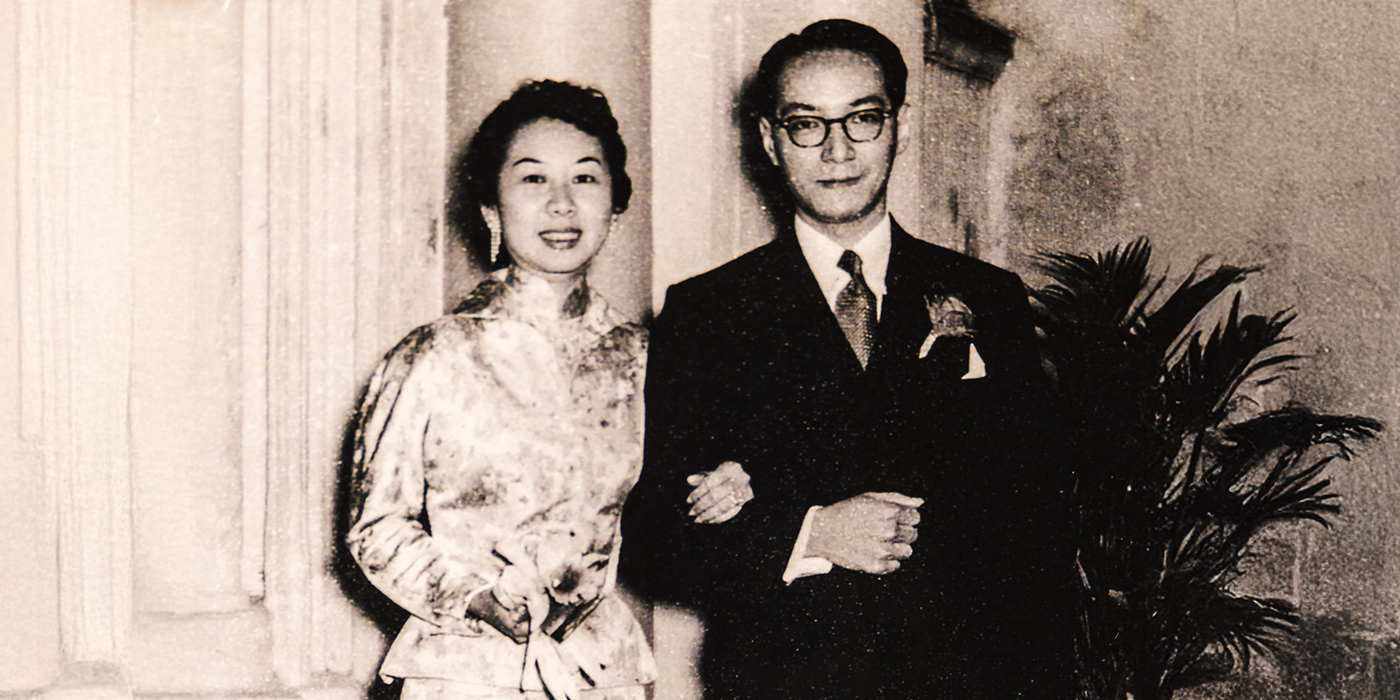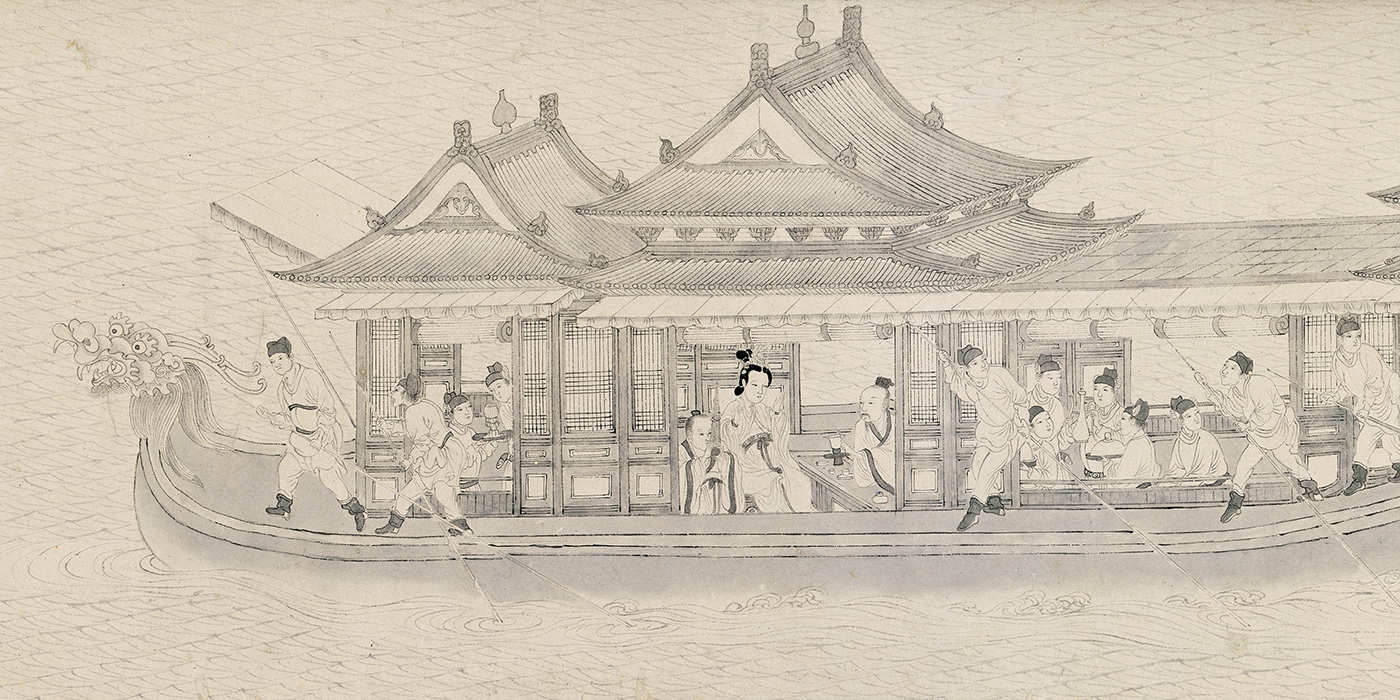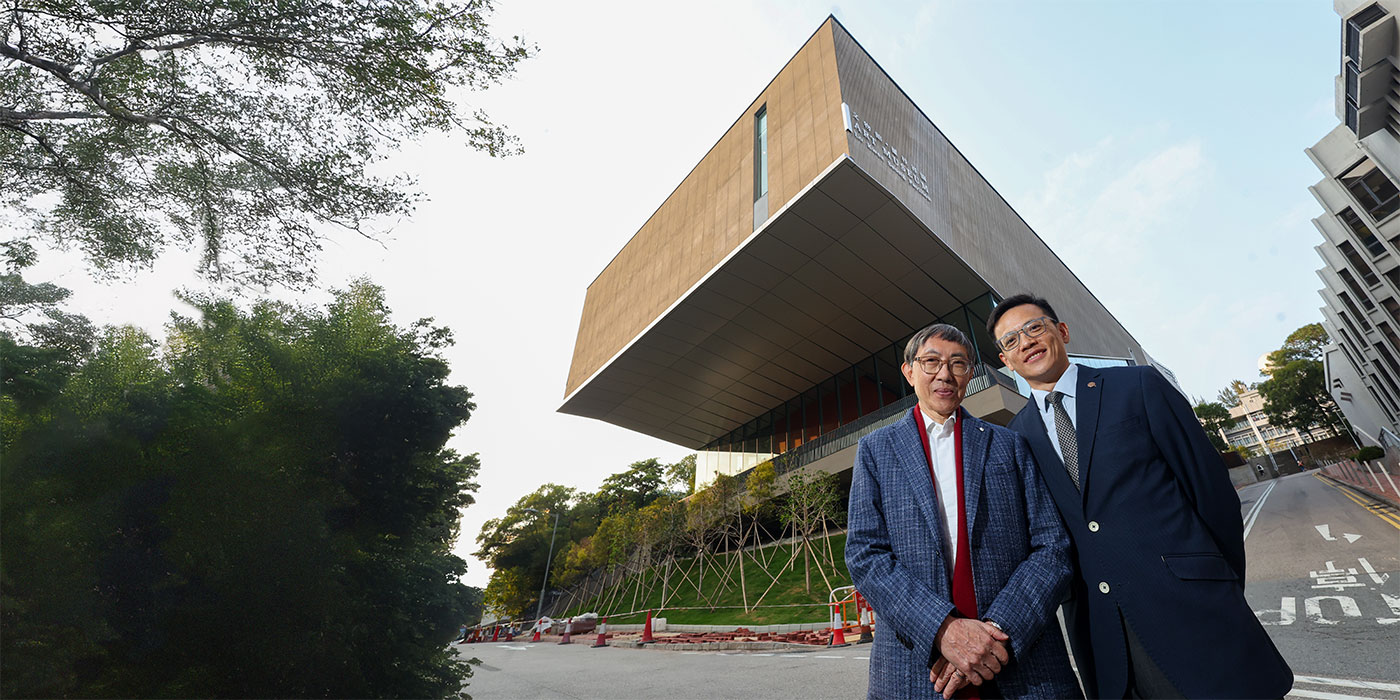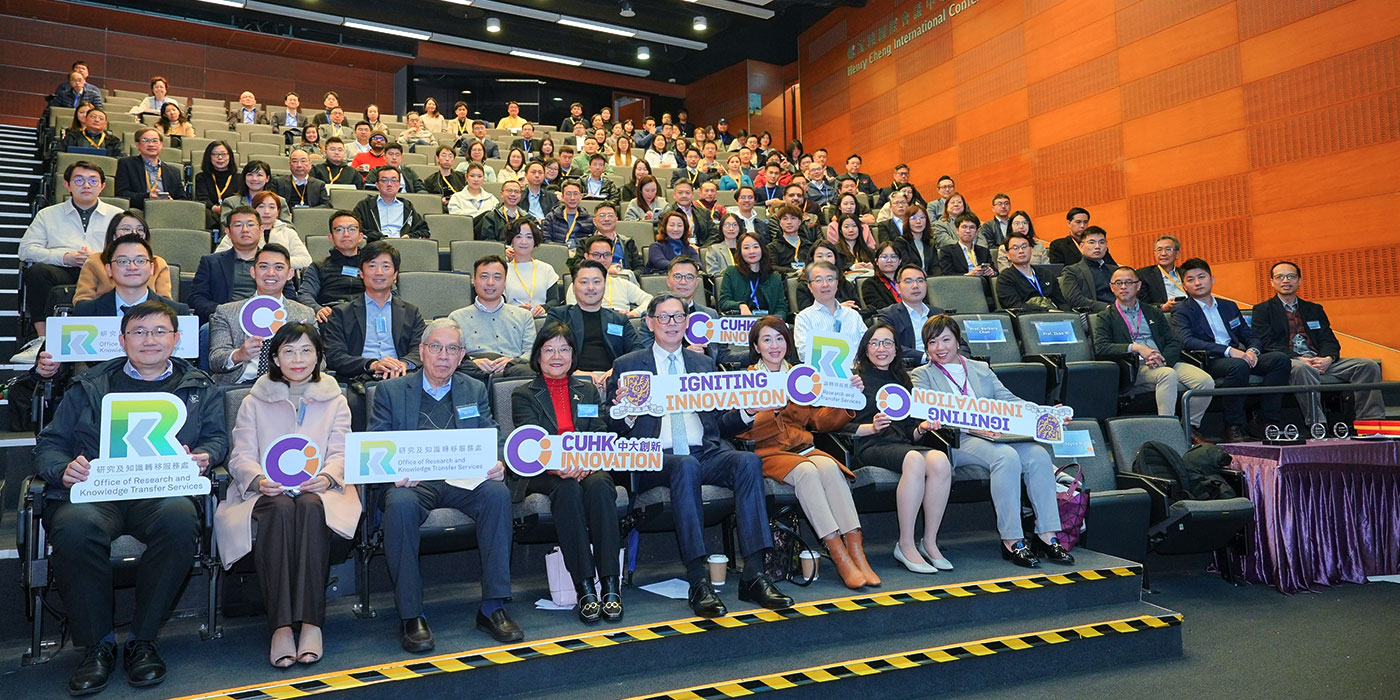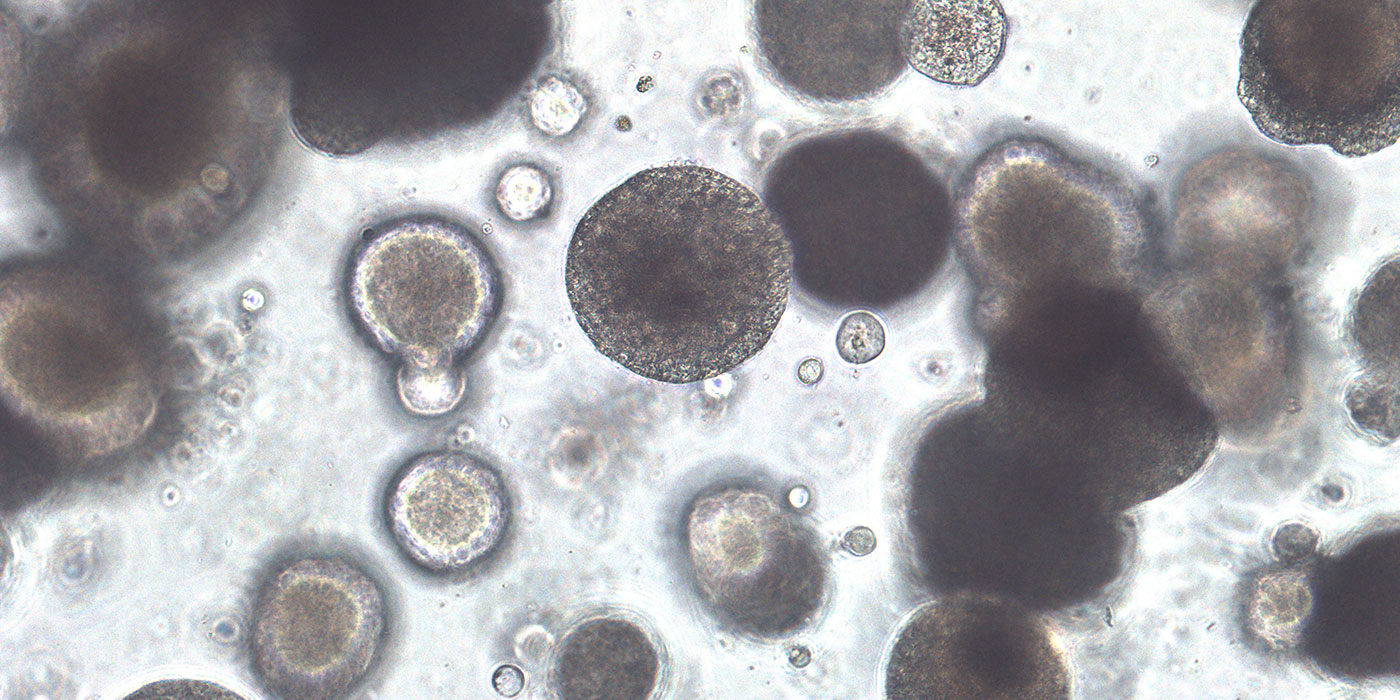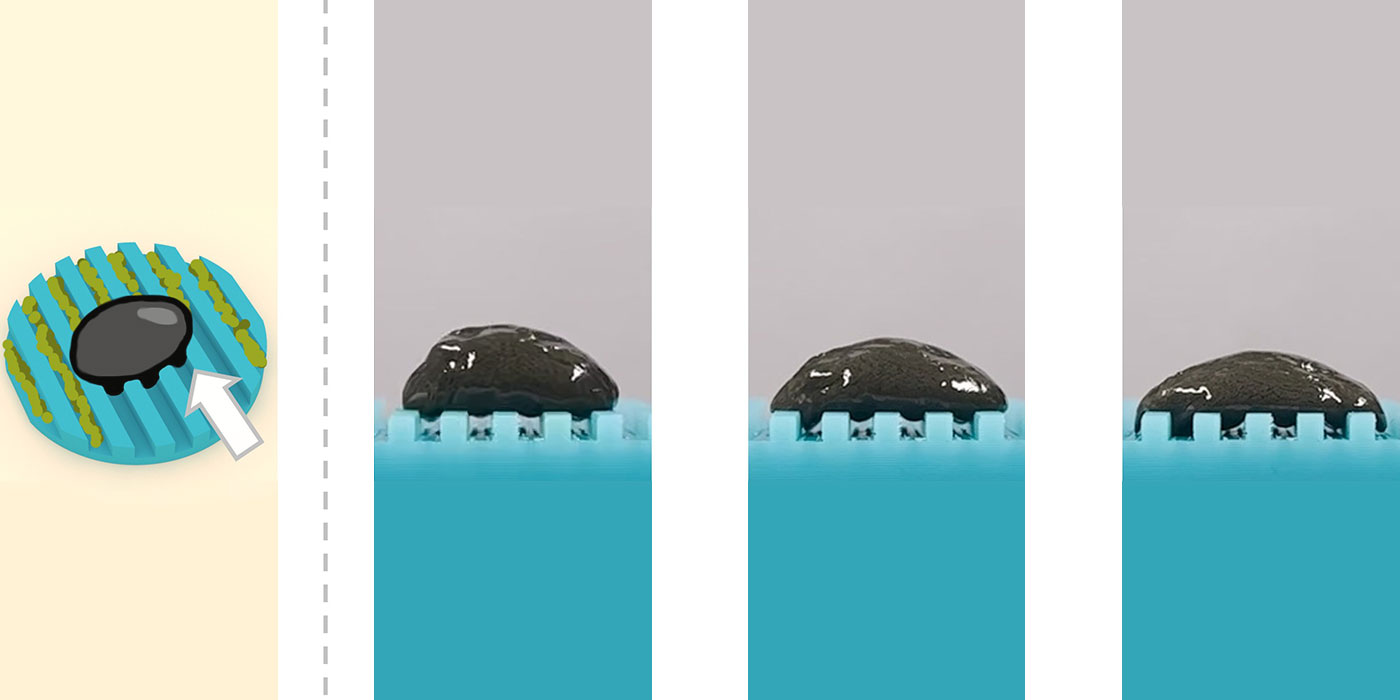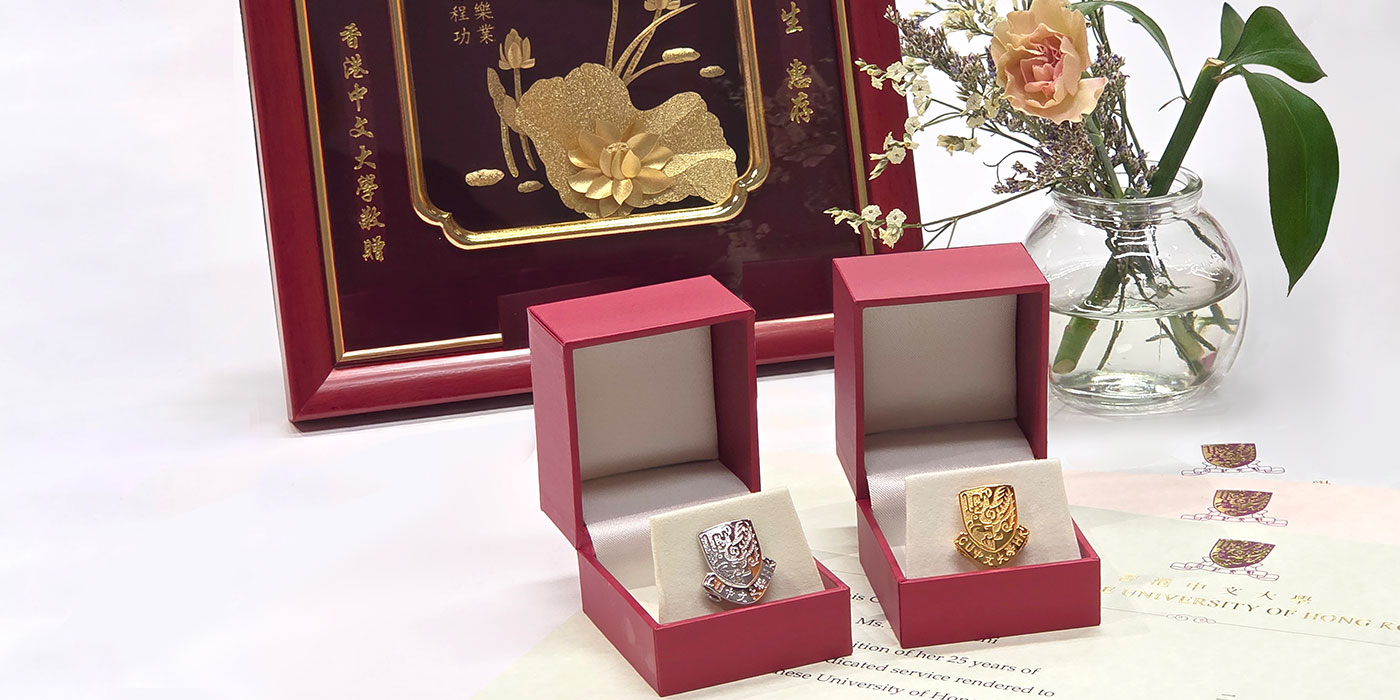Four CUHK research projects named among top ten innovation and technology news 2023
Organised by the Beijing-Hong Kong Academic Exchange Centre, the annual selection invites universities in Hong Kong to submit news on innovation, technology and scientific research. On 5 February, four CUHK research projects were named among the top ten Hong Kong Innovation and Technology News 2023.
Naturally biodegradable packaging materials
A research team at CUHK led by Professor Ngai To, Assistant Dean (Research) from the Faculty of Science and Professor in the Department of Chemistry, has made a breakthrough in the development of a new generation of biodegradable materials to replace plastics. Professor Ngai’s team has successfully invented a novel edible food packaging film. The findings have been recently published in the prestigious international scientific publication Journal of the Science of Food and Agriculture. The research team has discovered that bacterial cellulose can be used as an edible food packaging film. This novel bio-based packaging material exhibits similar stretching properties to plastic bags, can degrade in the natural environment, and is harmless to humans.
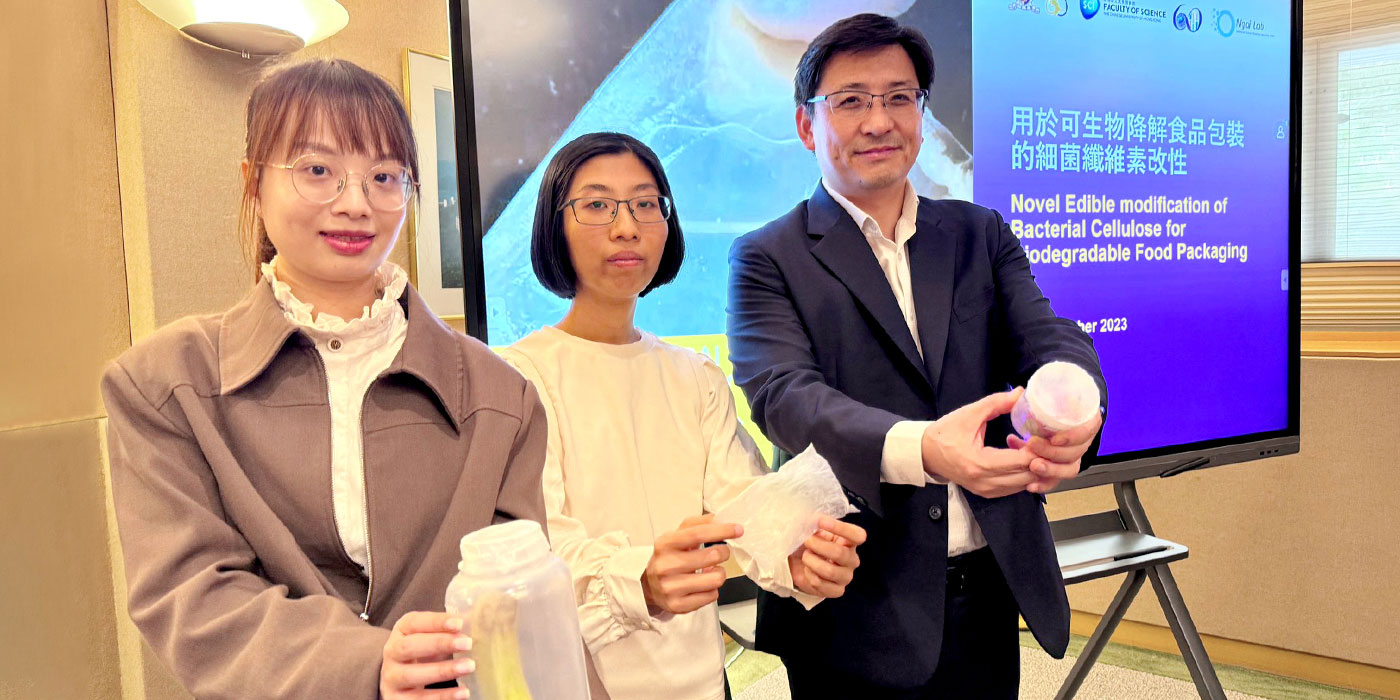
Click here for more details.
A breakthrough in combating lung cancer
A research team led by Professor Chan Ting-fung, Associate Professor from the School of Life Sciences at The Chinese University of Hong Kong (CUHK), has developed a novel computational method, LAFITE (Low-abundance Aware Full-length Isoform clusTEr), and identified thousands of low-abundance full-length RNA transcripts in lung adenocarcinoma cell lines that were unknown using existing technologies.
A new, rare transcript isoform was also found in a cancer-driving gene that significantly correlates with patient survival and tumour cell migration in lung adenocarcinoma, furthering studies of its progression. The findings have recently been published in the prestigious journal Advanced Science.
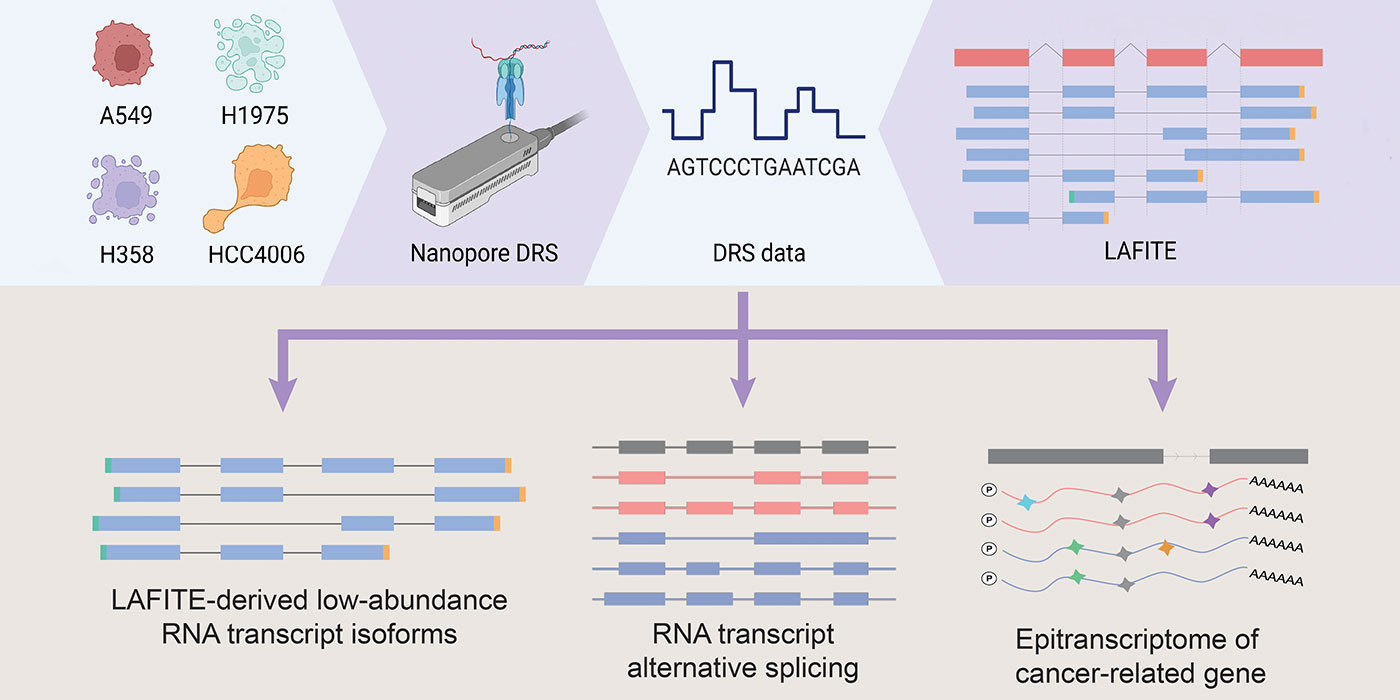
Click here for more details.
A new non-invasive approach for aneurysm embolisation treatment
A collaborative research team led by Professor Zhang Li from the Faculty of Engineering at CUHK and Professor Simon Yu Chun-ho from CUHK’s Faculty of Medicine has developed swarming self-adhesive microgels for a new embolisation strategy to prevent aneurysms from continuously bulging to a point of rupture. This collaborative work was published recently in the renowned international research journal Science Advances.
The microrobotic embolisation platform designed by the research team has overcome the bottleneck in aneurysm complete filling under highly dynamic blood flow and provides an image-guided interventional delivery strategy for in situ tracking and performance evaluation inside biological tissues. It is also potentially applicable to non-invasive embolisation treatments of other organs for bleeding control.
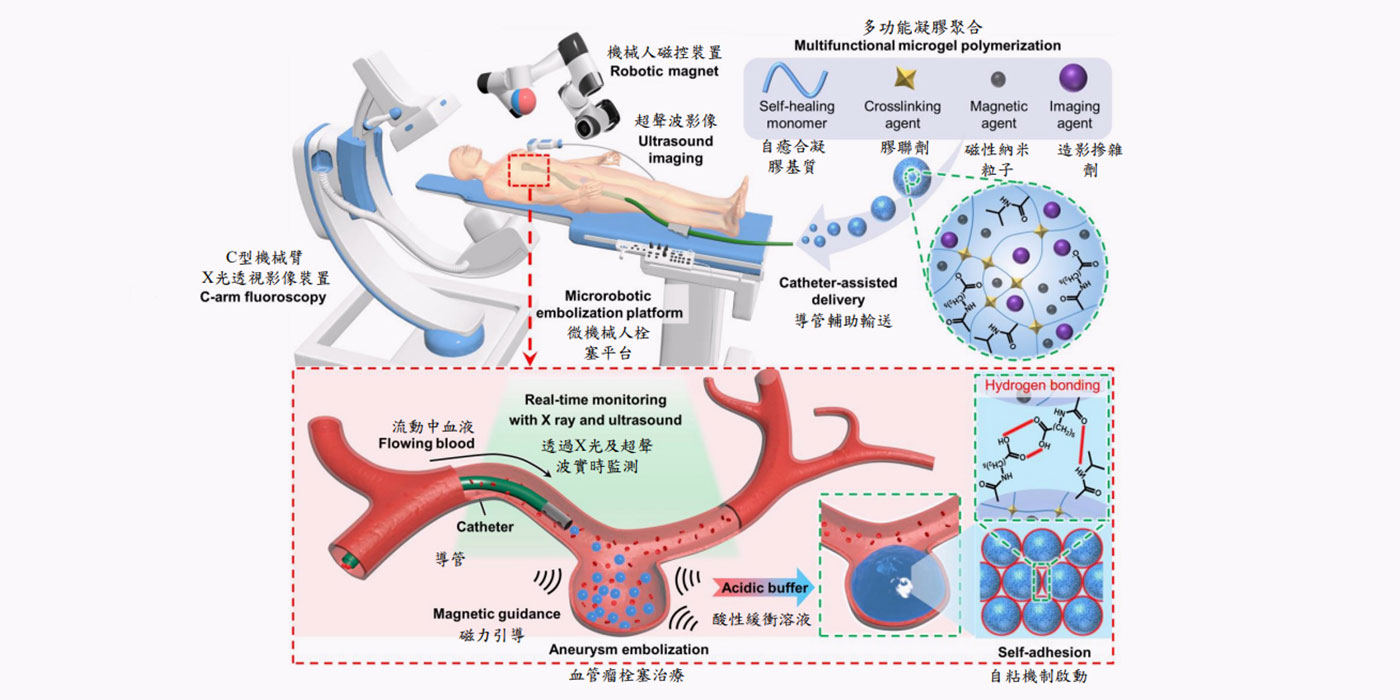
Click here for more details.
CU Medicine uncovers the keys for liver cancer adaptation to immunotherapy
Liver cancer remains one of the most common cancers in the world. Recent research from CUHK’s Faculty of Medicine has discovered how liver cancer cells adapt to immunotherapy, the most advanced therapy for cancer patients. The team empowered immunotherapy by counteracting the resistance mechanisms of cancer cells and confirmed their clinical potential in liver cancer animal models. Research results have been published in the leading international journal Gut. The team is also going to commence a new Phase II clinical trial of combination immunotherapy, aiming to translate the discovery into patient benefits.
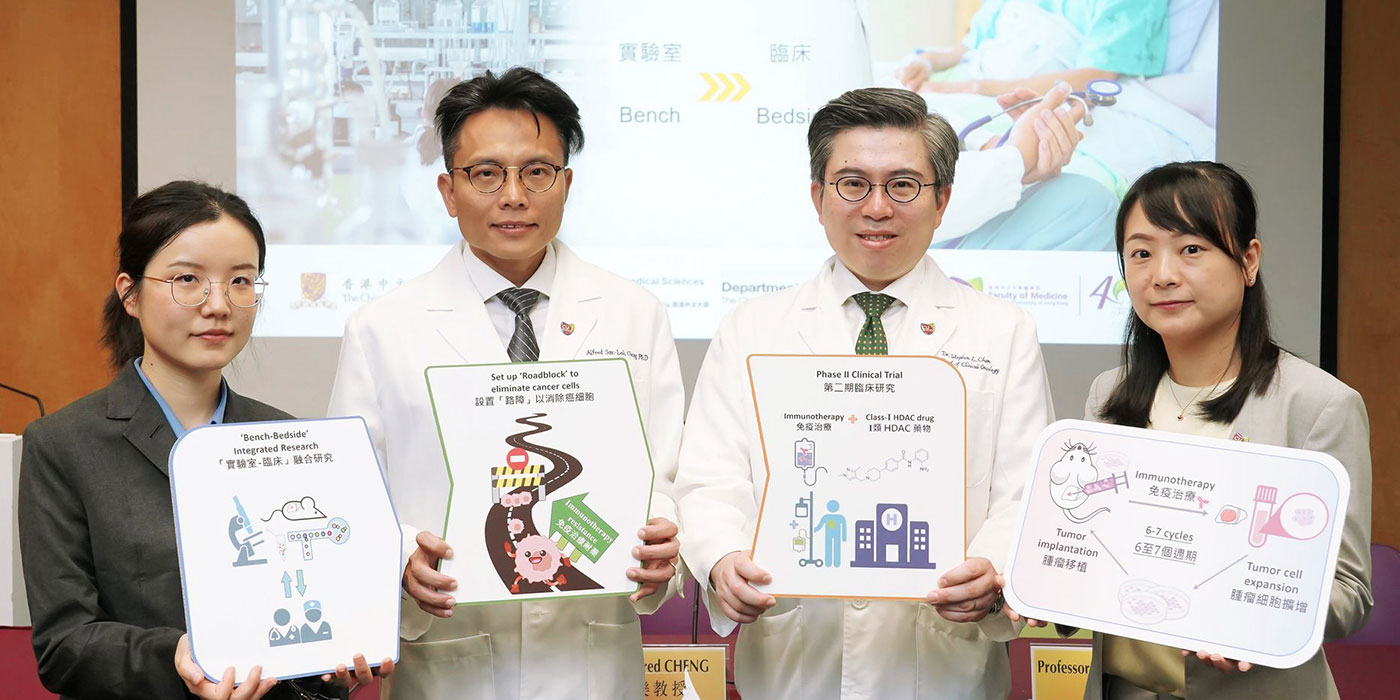
Click here for more details.







